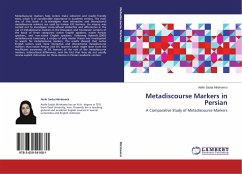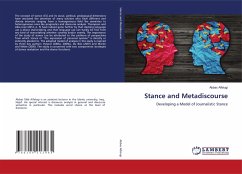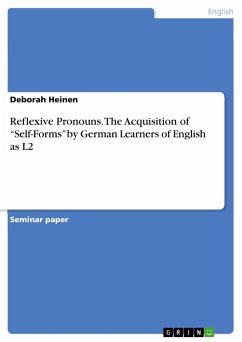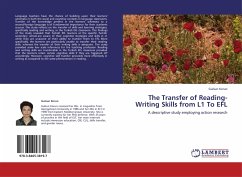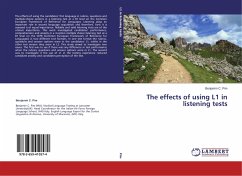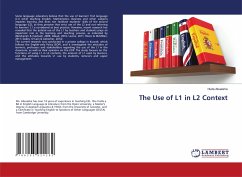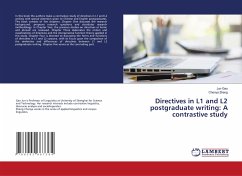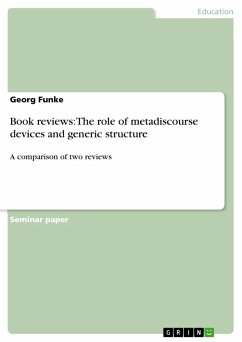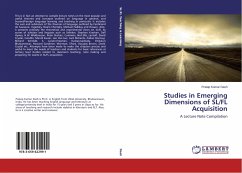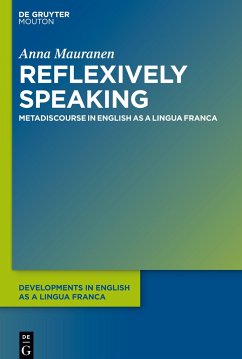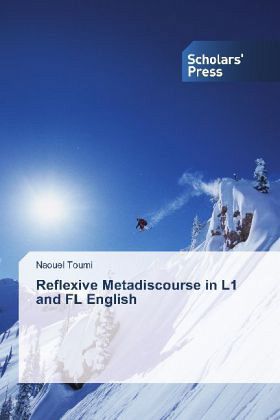
Reflexive Metadiscourse in L1 and FL English
Versandkostenfrei!
Versandfertig in 6-10 Tagen
75,99 €
inkl. MwSt.

PAYBACK Punkte
38 °P sammeln!
In academic writing, metadiscourse has been widely recognised as an important organisational and persuasive rhetorical tool. However, studies of this concept have been criticised for fuzziness and lack of borderlines between propositional content and metadiscourse instances. This book contributes to the international debate on metadiscourse from theoretical, methodological and pedagogical perspectives. On the theoretical level, the study presents a non-integrative model of reflexive metadiscourse applicable to the research article genre. This model reduces fuzziness and allows to draw a line b...
In academic writing, metadiscourse has been widely recognised as an important organisational and persuasive rhetorical tool. However, studies of this concept have been criticised for fuzziness and lack of borderlines between propositional content and metadiscourse instances. This book contributes to the international debate on metadiscourse from theoretical, methodological and pedagogical perspectives. On the theoretical level, the study presents a non-integrative model of reflexive metadiscourse applicable to the research article genre. This model reduces fuzziness and allows to draw a line between reflexive metadiscourse and neighbouring context. On the methodological level, the study adopts a computer-assisted approach which complies with current practices in corpus linguistics and takes the context-bound instances of metadiscourse into consideration. On the pedagogical level, the results of this study can help non native English academics write more felicitous research texts in English, and provide more accurate guidance to English for Academic Purposes course designers and/or instructors about the use of reflexive metadiscourse in English research articles.



